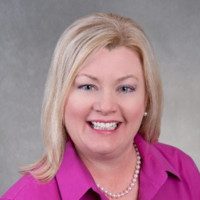Clemson, S.C. — Kyle O’Rourke, Emily Allen and William Trax, three Clemson University horticulture students , spent their summer helping Clemson Cooperative Extension Service agents launch a new statewide program.
The South Carolina Certified Landscape Professional (SCCLP) program is an online, self-paced certification program that provides high-level horticultural education and training to green industry professionals. It is designed to teach landscape professionals the best landscape management practices for major components of an urban landscape.

O’Rourke, Allen and Trax were introduced to the internship through Ellen Vincent, senior lecturer and environmental landscape specialist in Clemson’s College of Agriculture, Forestry and Life Sciences (CAFLS). She believes that internships open students’ eyes to job choices and network opportunities.
“During the internship, realizations emerge such as, ‘this is a perfect fit for me,’ or ‘this was not what I thought it would be,’ or ‘I enjoy certain tasks but prefer to avoid others in the future.’ These realizations inform job choices. Internships provide networks – many of our students are offered jobs by the site they interned at, or the internship supervisor serves as a job reference source for the intern,” Vincent said.
The students took the course and listened to the material, then, checked for mistakes, typos and made suggestions on how to improve the program.
Each student also had a different project they were assigned to complete.
Trax was responsible for creating new material for the pesticide applicator training program. He created PowerPoint presentations and wrote scripts that eventually became part of the program. His experience gave him a new appreciation for the work required to develop and launch a new Extension program.
“It definitely gave me an appreciation of how much work it takes to teach people. I knew it took work and that it was difficult, but I didn’t realize how much work it took to put together the material, to know what to say- it just took a lot of time,” he said.
Trax graduates in December and plans to work in hydroponic food production. Although the internship was not directly tied to his future field of work, he still feels it prepared him for what is to come.
“There are things I learned that I could take and apply, mainly communication skills,” he said. “I became a certified landscape professional so that was cool. But I got to create content that I knew will help people, so that was a good feeling,” he said.
Allen, from Myrtle Beach, was responsible for creating infographic modules that could be used as visuals for the program. Her infographics spanned a variety of topics that included local disease and pest control, and how to plant and maintain trees.
Before accepting this internship, Allen had plans to travel to another internship opportunity, but COVID-19 forced a change.
“I had plans to go to Connecticut and work on a state farm. I was so excited, but it got cancelled. So, I was like ‘I guess I’ll do this internship’. I didn’t have high expectations, but by the end of it I realized how cool it was. It was really helpful to jump into the online thing,” she said.
Allen believes that this experience showed her just how many jobs she could get with her degree.
“Being able to see all the different jobs in my field. It could be field work, paperwork, or education. It really broadened my horizons,” she said.
The internship also broadened her plans for after college. With plans to graduate in May 2022, she either wants to go into the workforce or graduate school. In whatever she chooses, she knows from her internship experience, she has the potential for both.
“It taught me how to trust myself to learn as I go. At the end, I can look back and see how far I’ve come. It also showed me how much I’ve learned in my two years [at Clemson ]. It further instilled my skill level and my potential,” she says.
O’Rourke’s role was to create a pruning module that will be added to the program, separate from the main course.
O’Rourke is a Spartanburg native who graduated in May and is now continuing to work for clients he had before college. He also is creating a business plan for a small landscape company. He believes that his time with the SCCLP helped prepare him for what he’s doing now.
Like many other students, O’Rourke’s internship and graduation plans had to change rapidly due to COVID-19 but he credits the inte
rnship experience with helping him reach his graduation goals.
“I don’t know if I would have graduated now if not for this experience…for the circumstances, it was put together pretty well,” he said.
Drew Jeffers is state coordinator for the SCCLP and Clemson Extension’s Horticulture and Natural Resources Program teams. He believes all students need a hands-on experience.
“I can’t stress how important a hands-on experience is,” he said. “You can take it into the interview.”
Jeffers worked with all the students and saw them overcome obstacles.
“Several times they would come to me and say that they felt like they weren’t doing it right,” Jeffers said. “But I picked them back up.”
By the end of the internship, both the students and Jeffers had grown an appreciation for one another’s work.
“What’s nice is that they contributed to something that’s not going to sit on a shelf,” he said.
Jeffers had high praise for the students’ contributions to a program he believes is essential for the state’s landscape industry.
“They each rose to the occasion in different ways. They all have their strengths…all three of them surprised me,” he said.
[END]
Get in touch and we will connect you with the author or another expert.
Or email us at news@clemson.edu

